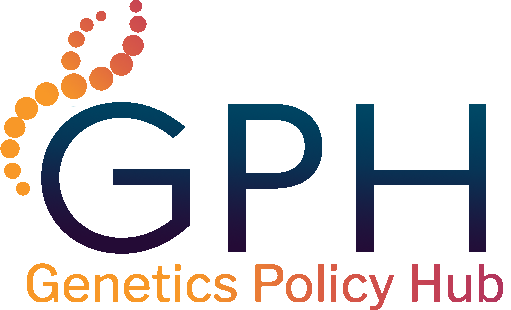From 2004 to 2024, the Health Resources and Services Administration (HRSA) funded the National Coordinating Center for the Regional Genetics Networks (NCC). NCC developed and maintained the Genetics Policy Hub.
With the conclusion of NCC funding, the Genetics Policy Hub (GPH) will no longer be updated or maintained. Information on GPH should be used for historical reference only.
Kentucky
This data is meant to be used for educational purposes to inform providers, patients, insurers, and state Medicaid agencies what genetic services may or may not be written into each state’s Medicaid policy. The database is not meant to indicate or imply whether a certain program will cover a specific service, since many decisions are made on a case by case basis. If you have specific questions about whether a service is covered, you should reach out to your plan administrator. Please see this disclaimer below for more information.
Medicaid Coverage Information Published
State Contact Information
Lisa Lee
Commissioner
Department for Medicaid Services
Kentucky Cabinet for Health & Family Services
275 East Main Street, 6 West A
Frankfort, KY 40621
Phone: (502) 564-4321
https://medicaiddirectors.org/wp-content/uploads/2023/06/Public_DirectorsList_June2023-1.pdf
General Genetic Testing Criteria
Genetic Testing Not Covered
State Specific Definition
Genetic Services for Children
Genetic Counseling Requirement
A person shall not engage in the practice of genetic counseling in the state without a valid license issued by the Kentucky Board of Medical Licensure.
If you have questions pertaining to information on this page, contact Dawn Beahl (502) 429-7938 or by email dawn.beahl@ky.gov.
311.695 Who may be licensed as genetic counselor — Temporary license.
- The board may issue a license as a genetic counselor to an applicant who:
- Submits an application to the board on a form prescribed by the board;
- Pays a fee determined by the board in an administrative regulation promulgated in accordance with KRS Chapter 13A; and
- Provides satisfactory evidence of possessing certification as a:
- Genetic counselor by the ABGC or ABMG; or
- Medical geneticist by the ABMG.
- The board may issue a temporary license to an applicant who:
- Has been granted an active candidate status by the ABGC; and
- Pays a fee determined by the board in an administrative regulation promulgated in accordance with KRS Chapter 13A.
- The board may issue a temporary license to an applicant who:
- A person issued a temporary license under this subsection:
- Shall apply for and take the examination for certification within twelve (12) months of the issuance of the temporary license; and
- May only practice if he or she has entered into a genetic supervision contract and is directly supervised by a licensed genetic counselor or a licensed physician.
- A temporary license granted by the board shall be valid for one (1) year from the date issued and shall expire upon the earliest of the following:
- Issuance of a license pursuant to subsection (1) of this section;
- Thirty (30) days after the holder fails to pass the complete certification examination; or
- The expiration date printed on the license.
- Whenever, in the opinion of the executive director of the board, based upon verified information contained in the application, an applicant for a license to practice as a genetic counselor is eligible for licensure under this section, the executive director may issue to the applicant, on behalf ofthe board, a temporary license which shall entitle the holder to practice as a genetic counselor for a maximum of one (1) year from the date of
issuance. The temporary license shall not be renewable. - The temporary license may be canceled by the executive director, who may cancel it at any time, without a hearing, for reasons deemed sufficient with appropriate consultation with the president, and who shall
cancel it immediately upon direction by the board or upon the board’s denial of the holder’s application for a regular license. - The executive director shall present to the board the application for licensure made by the holder of the temporary license. If the board issues a regular license to the holder of a temporary license, the fee paid in connection with the temporary license shall be applied to the regular license fee.
- If the executive director cancels a temporary license, he or she shall promptly notify, by United States certified mail, the holder of the temporary license at the last known address on file with the board. The temporary license shall be terminated and have no further force or effect three (3) days after the date the notice was sent by certified mail.
Metabolic Formula Coverage Legislation
902 KAR 4:035
Metabolic Formula Coverage & Criteria
KRS 194A.050(1) requires the secretary of the Cabinet for Health and Family Services to promulgate administrative regulations necessary to operate the programs and fulfill the responsibilities vested in the cabinet. KRS 205.560(1)(c) requires the cabinet to cover the cost of products for the treatment of inborn errors of metabolism or genetic, gastrointestinal, and food allergic conditions, consisting of therapeutic food, formulas, supplements, amino acid-based elemental formula, or low-protein modified food products that are medically necessary and administered under the direction of a physician. This administrative regulation establishes the application and cost reimbursement procedures for specialized food products.
Prior Authorization Requirements
Prior Authorization Forms
Fee Schedule
BRCA Testing Coverage
Coverage is available, but criteria is unknown.
Requirements for BRCA
Cystic Fibrosis Screening
Coverage is available, but criteria is unknown.
Hereditary Cancer Testing Coverage
Coverage is available, but criteria is unknown.
Lynch Syndrome Testing Coverage
Coverage is available, but criteria is unknown.
Microarray Testing
Coverage is available, but criteria is unknown.
Newborn Screening
The NBS Fee is $150 for the initial newborn screen. The cost is the responsibility of the child’s responsible party. Kentucky law mandates health insurance coverage of every newborn if the mother is under their coverage at the time of birth. In most cases the newborn screening fee is part of the newborn stay in the hospital and not billed separately. Please note that insurance companies that are headquartered outside of Kentucky or those who are self-insured are not bound by Kentucky Insurance Law. The state does not charge the individual but rather the healthcare provider who submits the specimen. There is no charge for a screen that has to be repeated. The state does not cover the test if the patient does not have insurance. The test is “self-pay” in those cases and families should contact their healthcare provider to determine the fee.
Panel Testing
Coverage is available, but criteria is unknown.
Pharmacogenetic Testing
Coverage is available, but criteria is unknown.
Prenatal Testing Offered
Coverage is available, but criteria is unknown.
Whole Exome Sequencing
Coverage is available, but criteria is unknown.
Other Tests Covered
For a full list of genetic tests covered, see the fee schedule.
Other Information
Resources
Newborn Screening Reimbursement

Disclaimer: The information contained in the database has been obtained from sources believed to be reliable but NCC has not attempted to validate or confirm the information. The database may be updated periodically. However, the accuracy and completeness of the information contained in the database cannot be, and is not, guaranteed. NCC makes no warranty of the accuracy, completeness or timeliness of this information, and shall not be liable for any decision made in reliance on this information. It is the user’s responsibility to verify this information by contacting the state Medicaid agency directly.
The database contains links to third-party websites. These links are provided solely as a convenience to users and not as a guarantee, warrantee, or recommendation by NCC of the content on such third-party websites or as an indication of any affiliation, sponsorship or endorsement of such third party websites. NCC is not responsible for the content of linked third-party sites and does not make any representations regarding the privacy practices of, or the content or accuracy of materials on, such third-party websites. If you decide to access linked third-party websites, you do so at your own risk. Your use of third-party websites is subject to the terms of use for such sites.

